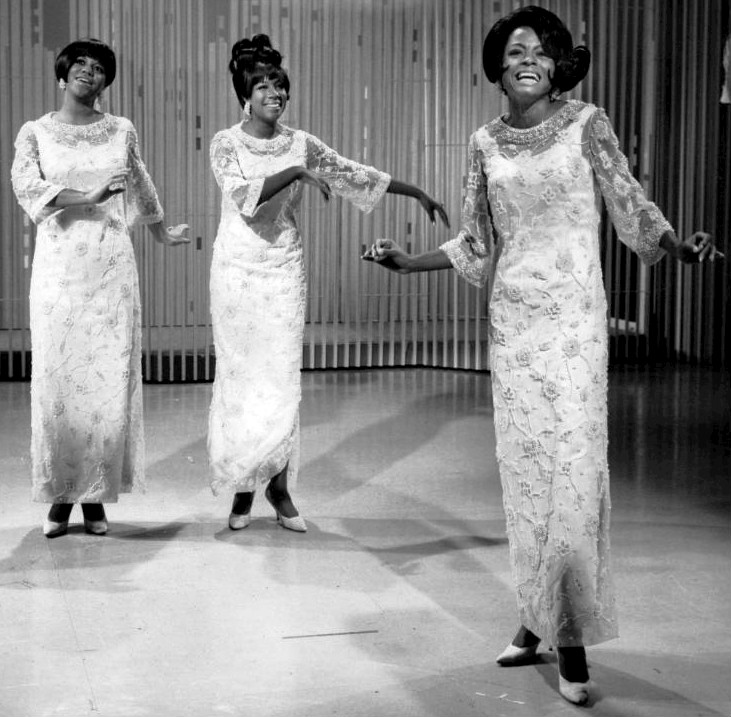
There are just a handful of songs that really get to me, almost every time I hear them. “You Can’t Hurry Love,” by the Supremes. “In My Life,” by the Beatles. “Fall On Me,” by R.E.M. “Letter From an Occupant,” by The New Pornographers. And as you could have guessed by the title of this column, “Sprawl II (Mountains Beyond Mountains),” by Arcade Fire. There are more that make me feel different things at different times, but these are some of the big ones for me. And what common thread do they have between them? Well, you might see a general 2000s indie rock vibe going on at the end, but other than that, not much.
Except for this: They’re all pop songs, with most of them clocking in around or close to the three-minute mark. So how is it possible that such short and seemingly simple songs, coming from such a wide range of genres, can affect your emotions so profoundly? I’m no psychologist, but I can say this: Conveying complex emotions in a compact amount of time is something that takes a lot of skill to do.
Now, let’s get the definition of a pop song straight here: When I say pop, I’m not necessarily talking about everything you hear on your local top 40 station. What I mean by pop song is basically a nonclassical, verse-chorus-verse-bridge-type song, one that almost every artist from Radiohead to the latest overplayed top 40 singer uses at least a variation of.
It’s hard to say what exactly the secret ingredient to making these songs stick is. The main genres I listen to are indie rock and indie pop, but I can recognize that not every song by an indie rock artist has this quality. On the flip side, when I occasionally tune in to a more top 40-oriented station, there will randomly be a song that catches my ear and makes me want to hear it over and over. The song that would make most people in my listening circle cringe and avoid it at all costs sometimes makes me sit and think: Why do I like this? I feel like there is an intangible at hand, one that many artists struggle to communicate: a feeling of being genuine through either their lyrics, the way they sing them, or through the music around them.
Herein is where the connections between a classic Motown girl group and a 2010 indie rock song lie. While clocking in at only 2:45, “You Can’t Hurry Love,” uses an utterly infectious bass line combined with Diana Ross’ yearning-yet-powerful vocals to communicate a very simple message: “You can’t hurry love / No, you just have to wait / You got to trust, give it time / No matter how long it takes.” The simple truth of impatient waiting for something that we have long been waiting for is something that most people can relate to. The bass line adds to this sense of urgency we feel. And it doesn’t really matter what you’re waiting for — even if the song is speaking specifically of love, the beauty of a pop song is that it can take on different meaning for different listeners who, even if they can’t relate directly to what is being sung about, can relate to the universality of the sentiment and emotion.
But using a classic song as an example is too easy. Take a song like “Breakeven,” by the pop-rock group the Script. In absolutely no way am I saying that this song and something like “You Can’t Hurry Love” are equals, but they both convey emotion effectively. Though “Breakeven” could easily be dismissed as a top 40 throwaway, the lyrics have something else to say. Once again, they are simple: “They say bad things happen for a reason / But no wise words gonna stop the bleeding / ‘Cause she’s moved on while I’m still grieving / And when a heart breaks no it don’t break even.” Some may call the basicness of the lyrics a fault, but in this case, the feeling of being dumped is nearly perfectly encapsulated. Despite the rhyming lyrics, the singer does not hide what being dumped feels like. An understated guitar, followed by a steady drum beat provides a stable backing for Danny O’Donoghue’s pleading vocals. Once again, listeners can add or subtract their own emotions to the track.
Not every great pop song is based around simple lyrics such as the above, but the best ones have a sentiment, whether through music or lyrics that allow the listener to wallow in them, and listen to them over and over again as a healing or support mechanism — or what the heck, just for fun too. And maybe the ones I listed above don’t do anything for you. That’s the beauty of pop music: In its conciseness we can find different meanings for ourselves in an art form that reflects us at our best and worst times — and know that someone else is experiencing them too.








